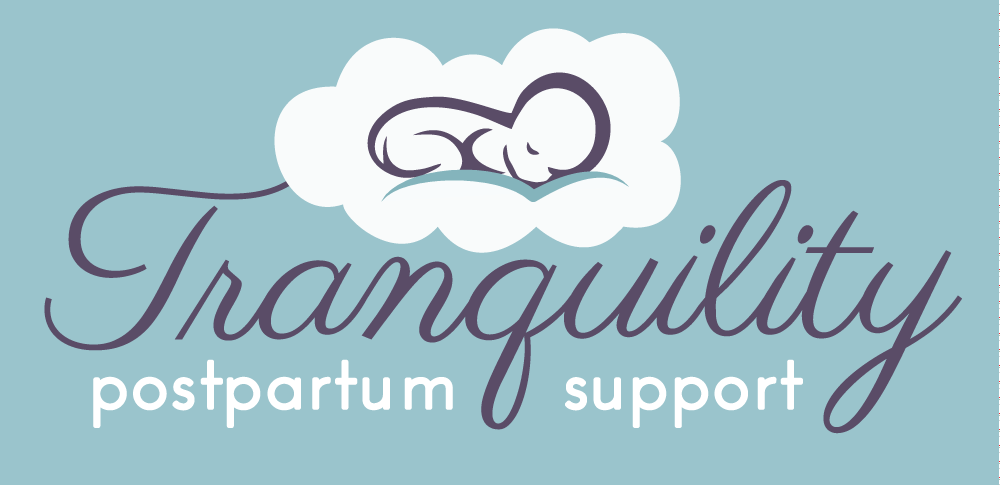This statement may be a slight exaggeration, but as a postpartum doula; I’m prejudiced. However, it has been my experience that most expecting parents spend hours upon hours researching and planning for an event that lasts, on average 15 hours and give very little thought or planning for the postpartum period that lasts months. The average childbirth preparation series spends 8-10 hours on labor and birth, but only an hour or two on what you can expect after birth. That is not enough! We also live in a culture doesn't value the new mother. She should just do it all on her own and go back to work when her newborn is just 6 weeks old. Cultures around the world treat the new mother like a queen and create a “buffer-zone” so the new mother is able to recover, ease into her new role, and bond with her baby.*
What is it really like after you give birth?
You are exhausted. With exhaustion comes an inability to make decisions, to cope, greater frustration, and a greater risk of postpartum depression. If you had a particularly long or difficult labor and birth, you are already starting behind the well-rested curve. You will be required to meet the demands of caring for a growing newborn which include feeding every 2-3 hours around the clock. A two hour stretch of sleep is not enough time to get quality sleep and recover.
You are physically healing. Even the easiest, text-book birth will leave you with some discomfort. Your muscles have built up lactic acid from labor just like a marathon runner; and you will feel it. Your perineum has been stretched farther than you thought possible and there may be stitches. With all pushing and straining, you could have hemorrhoids. No one wants to talk about hemorrhoids, but it’s real. Your uterus needs to shrink back to its pre-pregnancy size. That contracting can cause menstrual like cramps. The postpartum lochia flow will leave you wondering how it is possible to bleed so much and remain vertical. Your nipples will be tender the first week from breastfeeding. Having a cesarean birth adds another level of recovery needs.
There will be a paradigm shift in your relationship with your partner and your parents. You may find yourself in a very traditional role that you never expected. If Mom is taking a longer leave of absence or not returning to work, she is now more dependent on her partner for her financial security. Partners will feel the added pressure of having to be the sole provider. They may respond by spending more hours at work during a time when Mom wants them to spend more time at home. The new grandparents will relish their new role, but may have a hard time seeing you as an adult caring for a baby. They may want to “help” by giving advice and telling you what you should do. How will you respond?
You will have questions and self-doubt. New parents are bombarded with advertisements and recommendations from friends about the latest gadget, parenting book, and diaper rash treatment. It’s all very confusing. Is it right for you? For your baby? Can you say “no thanks”? With all of this advice, new parents question their ability to make decisions that are right for them. Even if you have researched about the newborn, you will still be asking, “is this normal?”, “Shouldn’t he be sitting up by now?”, “When will she sleep through the night?” Finding answers can be daunting.
What are new parents to do? Plan ahead!
1. Partners need to step up and be present. Take over the household duties of cooking, cleaning and laundry. If possible spread out paternity leave over many weeks instead of taking it all at once. Treat mom like a queen.
2. The new mom should treat herself like a queen. She should spend the first week or two in her pajamas. This will keep her in the mindset of needing to rest and recover. After that, she should stay in her pajamas until she has had 8 hours of sleep. Let others help.
3. Family and friends want to help. Let them – within reason. The new grandparents should come with the expectation of helping with household chores. Holding the baby while the new mom does housework and entertains them is not helping. Prepare a list of chores so that when a friend drops by and asks, “do you need anything?” You can hand them the list. No one gets in the door unless they come with dinner in hand.
4. Plan ahead and budget to pay for help. Hire someone to clean your home. Use grocery home delivery services. Hire or have family and friends gift the new family a postpartum doula. Have a list of certified lactation consultants by the phone. Sign up for new parents support groups.
Planning for birth is important because you are making informed decisions that affect an event you will remember for the rest of your life. Planning for after birth deserves as much attention so that you able to make decisions that will define who you are as a parent and so that you and your partner are able to enjoy this time of bonding with your precious baby.
Resources:
Puget Sound Area:
Grandparent Prep Class: Swedish Hospital
Postpartum Doulas: NAPS
Relationships: Life With Baby
Newborn communication: What’s My Baby Telling Me?
New Parent Groups: PEPS
Postpartum Depression: Postpartum Support International of Washington
Breastfeeding Support: Check your local hospital for referrals.
National:
Postpartum Doulas: Doula Match
Relationships: Bringing Baby Home
New Parent Groups: MOPS
Postpartum Depression: Postpartum Support International.
Breastfeeding Support: La Leche League
*Mothering The New Mother – 2nd Ed.,1998, Placksin,Sally, pp 48-49
